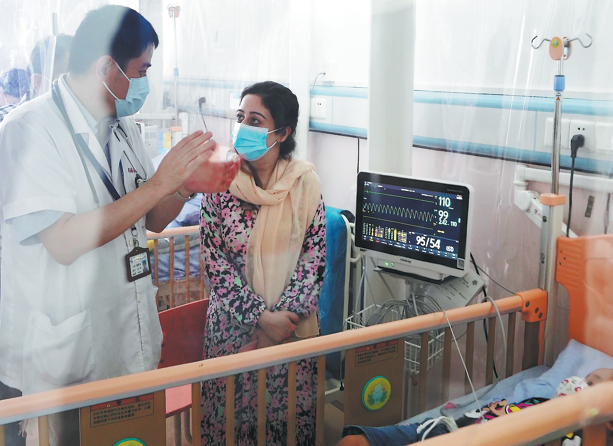Shanghai leads in attracting global companies
Shanghai proved its appeal as an ideal foreign investment destination as 30 regional headquarters of multinational corporations and 15 research and development centers were certified during a ceremony on July 25, according to official sources.
As of the end of June, Shanghai is home to 985 multinational corporations' regional headquarters and 575 foreign-funded R&D centers, making the city the most attractive destination for multinational corporations in the Chinese mainland, said Shanghai Fabu, the official WeChat account of the Shanghai municipal government.
"The R&D center that we have just got the accreditation for is our global R&D center, and it is the largest innovation hub in the entire Otis network," said Sally Loh, president of Otis China.
"Shanghai is a very vibrant, dynamic mega city that really provides businesses like ours… a very friendly environment. The certification that we have just received this morning as a global R&D center, is really an indication on the innovation capabilities that we have as well as the richness of the talent pool that is available in Shanghai," Loh explained the reason why the US-based manufacturer and maintainer of elevators and escalators choose Shanghai as the location for the center.
According to Loh, the nearly five hundred engineers at the center will serve not only the China market, but also the rest of the world.
"Imported products used to be regarded as good. But now, it is the other way around. Products made in China represent value price, high quality and best experience," said Andy Guo, managing director of China with US-based Kimberly-Clark.
According to Guo, in the past decade, Kimberly-Clark made about 13 million yuan of investment per year in research and development in China, and the figure reached 25 million yuan in the past two years, higher than the global average.
"Investment in innovation is supported by the great market potential. Considering its gigantic middle-income group, and the abundant amount of people becoming middle-income group, it is the largest growth market for the future," said Guo.
"Despite the challenges, we have reached agreements to add more than 50 new centers in China in the past two years, and we have a more ambitious plan of opening about 100 new centers per year," said Edward Hu, country general manager of London-listed workspace provider International Workplace Group (IWG).
According to Hu, the group, which entered the Chinese market as early as 1995, expects to operate nearly 2,000 centers in total over the coming decade.
"Since our entry into the China market in 2003 by establishing a factory in the city, we have constantly felt the international and market-oriented business environment that Shanghai offers for us. We have deeply felt the strong support of the local government, and that has enabled us to settle down and grow," said Wu Yin, vice-president of marketing in China with US-based wellness company Melaleuca.

